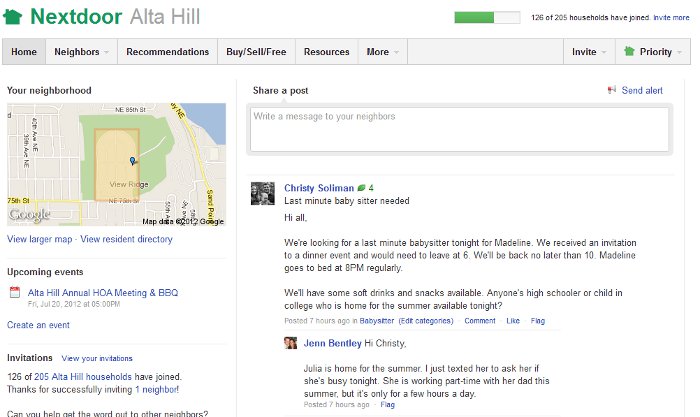A San Francisco startup wants to provide digital spaces for people who live in real-life communities, re-focusing users’ social lives on local networks with the help of modern technology.
Nextdoor co-founder Nirav Tolia said that many users want to reclaim the intimate social connections associated with physical spaces – the types of networks conducive to organizing neighborhood barbecues, recommending a babysitter, and locating lost pets.
 “We believe that users are migrating to smaller, local networks out of utility, not concern,” he said. “The neighborhood is one of the most important communities in our lives, so it’s no surprise that we want to connect with those who live around us.”
“We believe that users are migrating to smaller, local networks out of utility, not concern,” he said. “The neighborhood is one of the most important communities in our lives, so it’s no surprise that we want to connect with those who live around us.”
At the same time, many users have grown suspicious of big names in the social media industry, and may feel that hyperlocal networks offer better security. Tolia said privacy was “definitely a priority” for Nextdoor, pointing to the features including address verification and HTTPS access as part of a holistic, security-oriented social network.
“We built our service from the ground-up to be a safe and secure online environment where neighbors can feel comfortable sharing online all of the things they are comfortable sharing offline,” Tolia said.
But could the rise of hyperlocal networks deepen historical divides between neighborhoods, even as it encourages connections within them? Research has suggested, for example, that youth moved from MySpace to Facebook along lines of race and class, creating “digital ghettos” that placed privileged young people on a digital conveyer belt to collegiate success.
It’s the company’s hope that that will not be the case. And part of how that plays out will involve how lines are drawn: Tolia pointed to Pew research that showed that Americans who are members of an online neighborhood forum are more likely to get to know their neighbors, and to talk to them on the phone or in person. Moreover, individuals with those connections are more likely to have listened to their neighbors’ problems or to have received support from them.
“It is important to note that the same report found that participants who used general social networking websites did show some evidence of lower engagement with their neighbors,” Tolia said.
Below is a demo neighborhood the company has set up to show what the site looks like.
Images: 20th Century Fox, Nextdoor







